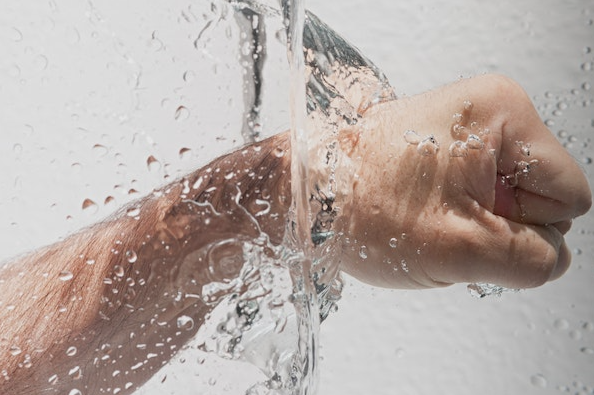9409Views 0Comments

Personal Hygiene Practices: Be the Cleanest Version of Yourself
Practising personal hygiene is part of our way of life. From securing job opportunities to improving our health, maintaining a good personal hygiene routine is imperative for having a good quality of life and your health. We come into contact with so many different germs and viruses daily. Cleaning of our bodies from top to bottom should be done daily to prevent the bad microbiomes from invading our bodies and immune systems. Also, mental health has been proven to be improved by having great personal hygiene practices. From visiting your Milton Keynes dentists regularly, to keeping those nails clean, prioritising your hygiene is key.
If hygiene seems simple for you, that is great! On the other hand, personal hygiene does not come naturally to a lot of other people and that’s okay. In the blog post, we will discuss what personal hygiene habits you should be implementing into your daily or weekly routines. Even if you think you are the master of your hygiene, some small tips and tricks can elevate your routine to the next level.
Hand Hygiene
It might sound far-fetched, but hand hygiene is so important. Our hands experience the most touching out the outside world, which means they carry most of the viruses that can be transferred into our bodies. Since the covid 19 pandemic especially, we have seen a much more focus on the hygiene of our hands, but there is more to hand hygiene than simply washing them with soap and water.
Nails
Maintaining healthy and clean nails should be a priority. Our nails are susceptible to carrying dirt and also look discoloured, which is not a pretty sight! Aim to clean your nails every night to remove any remains of dirt and grime. Consider using a nail brush and soap. If you are a smoker you will likely have especially discoloured nails and fingertips. Quitting smoking isn’t the easiest of tasks, but it will help your overall health, as well as your hand hygiene, improve.
Sanitise
Sanitising your hands should go without question when you have been out in public spaces, handling animals, or even before and after you eat a meal. Killing the bad bacteria that lingers on our hands is important to reduce the risk of such bacteria entering our systems. Carry an anti-sanitiser around with you when in public, and give your hands a good wash when you enter your home to avoid spreading the germs to others and yourself when relaxing at home.
Moisturise
Although moisturising might not seem like an important part of hygiene, making sure our skin is well-hydrated is a valuable part of any personal hygiene routine. Dry, cracked skin on the hands can become unsightly and painful if not treated. The best preventive method to avoid getting to this stage is to wash your hands regularly. Sanitising the hands also has a drying effect, unfortunately as helpful as it is for killing bacteria, so accompany your sanitising routine with a moisturising cream after to avoid any soreness.
Oral hygiene
As of last year, oral hygiene has been on the decline. In 2022, it was recorded that close to 3.5 billion people were affected by oral hygiene diseases. Oral diseases are linked to issues that can be present in the rest of our bodies, hence the importance of meeting a great oral hygiene routine.
Regular cleaning
Cleaning our teeth should not be as basic as brushing twice a day. Brushing is essential, but you should also have the correct tools for cleaning your teeth, including a strong toothbrush, floss, and also fluoride-based toothpaste. Did you know that you are supposed to replace your toothbrush every 6 months? If your toothbrush has not been replaced for some months and the bristles are not as strong as they were, it might be time to get it replaced. Also, flossing is key if you wish to remove any leftover food particles from between your teeth. Residue food particles will quickly build to create plaque. This can develop into a more serious gum disease, so make sure you clean them thoroughly!
Dental check-ups
Engaging in regular dental checkups is important to spot any early signs of dental issues such as cavities and plaque buildup. Dental health checkups should be done every 6 months, so make sure you are visiting your Milton Keynes dentists regularly, especially if you spot any early signs of developing problems.
Body Hygiene
Body hygiene is likely the routine that you would consider yourself adept in, but there is more to full body hygiene than having a singular shower daily.
Regular showers
As mentioned, showering daily is the bare minimum you should be including in your daily routine. Water can be expensive, especially if you have long showers. Limit your showers to a maximum of two minutes, and shower first thing in the morning and when you get home from being out in public. If you only shower in the morning, and get into bed at night after being outside, think about all of the bacteria that will still be present in your body! It’s not a nice thought, and in this case, your bedsheets will likely need more of a clean than you. Shower twice a day when possible to remove any harmful bacteria from lingering on your body.
Exfoliation
We all have a build-up of dead skin cells that if left untreated, can result in rough and unhygienic skin. Exfoliating the skin should be done at least every 2 weeks to remove dead skin and ensure a soft and smooth surface. There are many body scrubs that you can get that are designed for removing such skin cells. Make sure you also moisturise your skin after exfoliation as it may be quite sensitive if you are not used to it!
Facial hygiene
Many of us neglect the importance of a good facial hygiene routine. The skin on our faces is often the most sensitive, and also prone to attracting gems which often results in acne. A facial hygiene routine can be as simple as having a cleanser and moisturiser, but perhaps you will be looking for something more complex.
Acne prevention
The best way to prevent acne with your facial hygiene routine is to have a deep cleaning soap, a toner, and also an acne-specific moisturiser. The cause of acne might be due to bacteria on the face, but also acne might be due to a hormonal imbalance. If your acne is not improving with your routine, it would be best to visit the doctor to get their professional recommendations.
Bottom line
Overall, personal hygiene should be a priority in our day-to-day lives. If some of the mentioned habits are not something you currently implement into your daily routine, start to slowly create your bespoke routine. Personal hygiene should come as an instinct, and making these practices a priority will guarantee you have great personal hygiene that your peers will be able to recognise.


